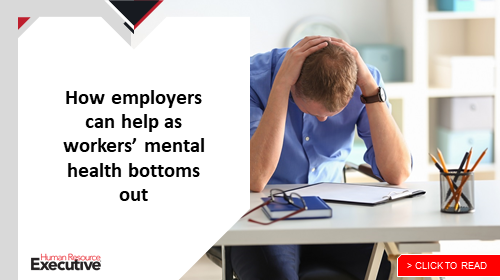After a leak of a draft Supreme Court ruling indicated that Roe v. Wade may soon be overturned, there have been many questions about what might happen if the landmark decision that protects a woman’s right to have an abortion is in fact reversed. Among the questions: What would it mean for health and benefits coverage?
The latest: The Supreme Court overturned Roe v. Wade. What employers should do now
“At the very basic level, if Roe v. Wade is overturned, it ends the federal protections that ensure the rights to abortion. And it allows each state to put its own regulations in place,” says Becky Seefeldt, vice president of strategy for New York-based benefits firm Benefit Resource, who is fielding calls from employer clients about their options if the law is reversed.
Ahead of the ruling, a number of employers are trying to navigate their options, she says. “Some are actively concerned and looking for advice. Most of the questions we are fielding are ones from employers that are looking to ensure that they can offer services to their employees,” she says. “They’re really looking to ensure that they’re prepared if something happens—that people don’t feel like they’re stuck and don’t have options.”
 HRE spoke to Seefeldt about the benefits implications of a Roe v. Wade reversal, what employers are saying now, and why HR leaders should address and anticipate employee concerns.
HRE spoke to Seefeldt about the benefits implications of a Roe v. Wade reversal, what employers are saying now, and why HR leaders should address and anticipate employee concerns.
HRE: How complicated could a reversal of Roe v. Wade be in terms of employers’ benefits and healthcare coverage?
Seefeldt: If [employers] already offer nationwide coverage options, the lift is far less than if you currently have a narrow network that might be just reserved to one state. If you do offer those nationwide benefits, as long as you’re part of a nationwide network that is covering those services, you really wouldn’t need to take any significant action because it would already be in that broader [benefits coverage] that you’ve made available to employees. But if the ruling gets overturned, it would allow states to regulate what happens. And about half of states would be likely to ban abortion, so employees would have to travel for the procedure.
HRE: That’s why some employers recently announced that they will cover travel expenses for employees to access abortions in states where they can legally receive such services. Do you think if Roe v. Wade is reversed we’ll see more of that benefit?
Seefeldt: Yes. And since a lot of this will be state-driven, I think that in those key states, larger employers probably would be in a position that they would want to be evaluating whether or not that makes sense. I would say, the larger [the employers] are, the more likely it’s something they’re going to have to look at seriously.
HRE: What about expansion of other benefits? How can that come into play?
Seefeldt: If abortion services are not readily available in a particular market, it may lead to more people having children. That may lead to an increase in [a variety of employee benefits offerings], like parenting classes or childcare benefits, but it may also take the form of adoption options or counseling services and letting people know what their alternatives could be.
Employers might provide more childcare benefits, like providing onsite care or providing other care services for employees’ children. Or there might be more dependent-care flexible savings accounts. But employers could also look at a supplemental employer-funded specialty arrangement where they’re providing additional funding for their services as well. There are lots of different ways an employer can provide benefits.
HRE: Should employers, and HR leaders, in particular, be preparing now for the potential reversal of Roe v. Wade?
Seefeldt: As employers, I would be proactive in understanding and preparing your options, but I wouldn’t take any action until we see how all this unfolds. I think it’s important not to put the cart before the horse and begin down this path of offering different types of account benefits and different things when it could not happen. But being able to know what your options are, and knowing how you want to respond, I think is appropriate from a planning perspective.
HRE: What should employers do first if it is reversed?
Seefeldt: Ensuring that they understand what their state rules would be [following any change to Roe v. Wade] would be the No. 1 thing to do, including where their state is going to fall on it. You may not need an action plan if your state’s unlikely to change its position. But roughly half of states do follow federal laws and do plan to continue to follow the federal rules [surrounding abortion].
 Employers will want to look at their coverage plans and understand what could change and what would be covered. And from there, decide if you want to change anything or add coverage. Do you want to offer additional funding for those travel-related expenses? Do you want to offer similar benefits?
Employers will want to look at their coverage plans and understand what could change and what would be covered. And from there, decide if you want to change anything or add coverage. Do you want to offer additional funding for those travel-related expenses? Do you want to offer similar benefits?
HRE: Why, in particular, should employers and benefits leaders pay attention to this and care about this?
Seefeldt: I think fundamentally because their employees are going to care. They’re going to want to know what [their company’s] response is because it does have some direct and fairly long-term implications.



